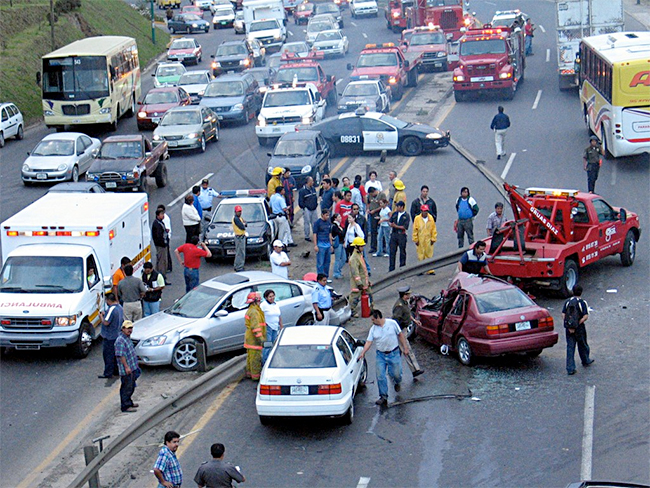Most drivers don't think ahead to how they would proceed if they were to become involved in a collision, but having a proper plan in place can save lives as well as reduce injuries and emotional stress. One of the most important things that you can do after becoming involved in a collision is to stay calm, and that is much easier to do if you have already prepared yourself for the scenario.
Motorists frequently take driver education courses, drive defensively, and avoid heavy traffic situations when possible to prevent becoming involved in collisions. However, circumstances sometimes can't be helped, and collisions continue to occur. Being involved in a collision is a stressful experience that can leave you feeling drained and frightened even if you don't sustain any major physical injuries.
Preparation Matters
Being prepared is the best way to circumvent some of the problems that typically arise after a collision. Keep in mind that whether or not you are the one at fault, you still have a responsibility as a driver to know what to do.
Having a pad of paper and a pen in an accessible place in your vehicle along with an insurance card, a cell phone with a camera will provide you with the proper tools to immediately begin to handle the situation in the moments following a collision. A mobile insurance app will help you accurately document the situation.
Following are the steps that you should take immediately after a collision:
- Identify and assist the injured.
- If injuries exist, dial 911 if no one else has done so yet.
- Secure the scene as much as possible. Make sure that no one is in danger or being struck by oncoming traffic, and set out flares if you have them.
- Even if the situation doesn't warrant a call to 911, you will still have to notify the local police department. The law requires that you file a police report, so even if the other party is hesitant, you must contact the authorities. Your insurance company will require a police report in order to process any damages.
- If the accident is relatively minor, the police may choose to not come to the scene. In that case, you can file a police report at the local police department or Department of Motor Vehicles, but be certain to do so as quickly as possible because most states have time limits concerning when you have to file.
- Document the scene. Take pictures, get statements from witnesses, and exchange information with everyone involved.
- Information should include names, telephone numbers, home addresses, email addresses, driver's license numbers, plate numbers, the makes, models, and years for all vehicles involved, and insurance information.
- Your insurance company will need to be notified as soon as possible after the accident. Most insurance companies have an online option for reporting accidents as well as 24-hour staff.
- You have the legal right to have your vehicle repaired at the body shop of your choosing. Consider using an AAA approved shop for best results. Visiting www.AAA.com/Repair will provide you with a list of shops in your area.
It's important to avoid letting emotions take over in the aftermath of an auto collision. Insurance companies usually advise their customers not to allow themselves to be pressured into admitting fault. Instead, remain as calm as possible, take the necessary steps to ensure the safety of all who are present, and get the required information.
Choosing the Right Defensive Driving Course
Face it, defensive driving courses aren't the most riveting way to pass the time -- traditional traffic schools are grueling experiences where everyone watches the clock. Why not make the experience fun and memorable by attending a Comedy Defensive Driving Course? People retain information more effectively when they learn it in an engaging and interactive environment instead of simply sitting and listening to dry, boring lectures while watching the clock.
You'll not only have fun while attending a Comedy Defensive Driving Course, but you'll also learn valuable strategies that will stick with you and serve you well if the time comes when you have to navigate your way through a vehicle collision.
- Explore our comprehensive guide on The Impacts Of Strong Emotions On Driving Ability to understand how emotions affect driving performance and safety.
 Live Chat
Live Chat



